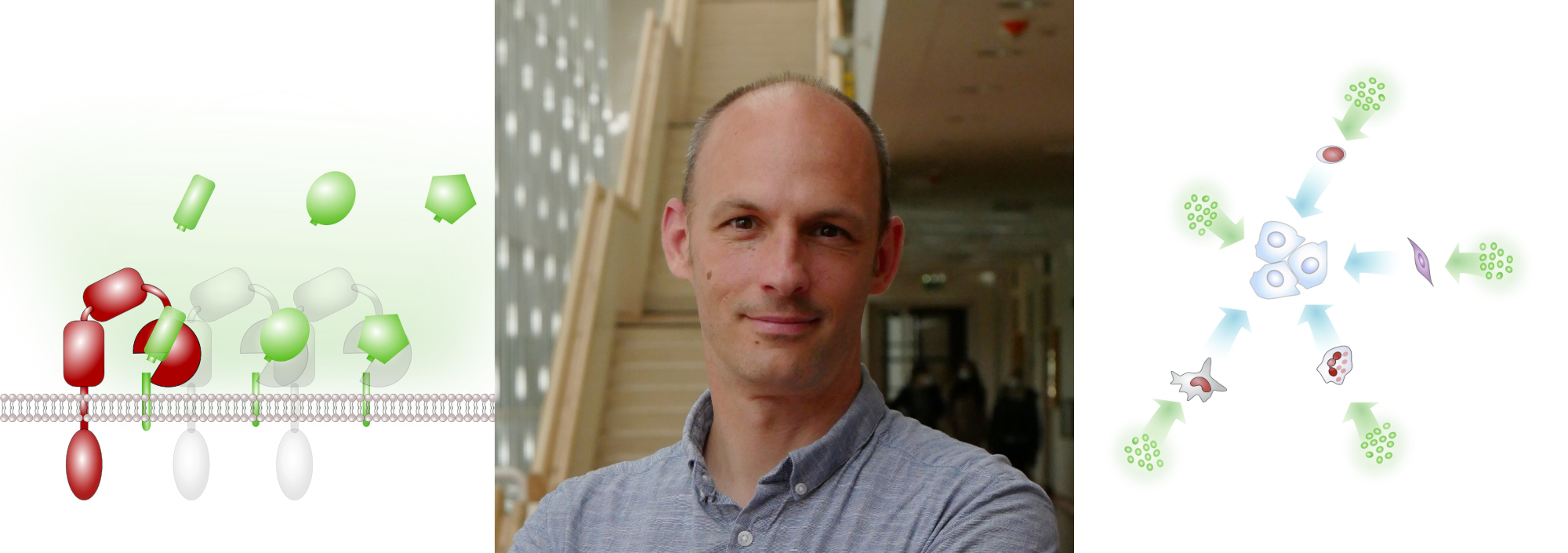
ADAM Proteases
The family of ADAM (A disintegrin and metalloprotease) proteases has been implicated in a variety of signalling processes. Ectodomain shedding of cytokines like e.g. TNFα, growth-factors like e.g. TGFα and receptors like e.g. Notch have been shown to be mediated by ADAM10 and ADAM17. As such ADAM proteases have been implicated in a number of tumours. However, little is known about the role of ADAM proteases in the tumor stroma and cells of the metastatic niche. We’re investigating how ADAM proteases in the tumour microenvironment regulates primary tumour growth and metastasis.
Cytokines
The family of IL-6 cytokines has eleven members and pleiotropic functions within the body. All family members share the same signal transducing subunit GP130 (Figure 2). In the recent years, gain- and loss-of-function mutations have been discovered in different pathologies, including liver cancer. On the basis of these mutations, we’re trying to understand how GP130 signals emerge from different subcellular localisations (Figure 3 a), how they differ in signal quality and how cytokine selectivity of GP130 is achieved at a molecular level. IL-6 family cytokines can have diverse biological outcomes depending on the cell type of the receiver cell (Figure 3 b). Current mouse models were unable to dissect cell type-specific cytokine effects. By using a novel in vivo mouse model we’re now able to analyse cell type-specific effect of GP130 signals to a certain biological outcome in different pathological settings including primary tumour growth and metastasis. Based on our findings we aim to interfere with GP130 signalling in a cell type-specific manner.
Immunity
Growth and survival of tumour cells is subjected to immune surveillance. Pre-cancerous cells are recognized by cells of the innate, as well as cells of the adaptive immune system and subsequently killed. In tumours this system is largely impaired, as anti-tumour immunity is suppressed and mitogenic factors are released by pro-inflammatory immune cells. Cytokines play a key role in this complex interaction of several cell types. We aim to understand how a tumour-permissive immune micro-environment occurs, in particular in tumour metastases.




